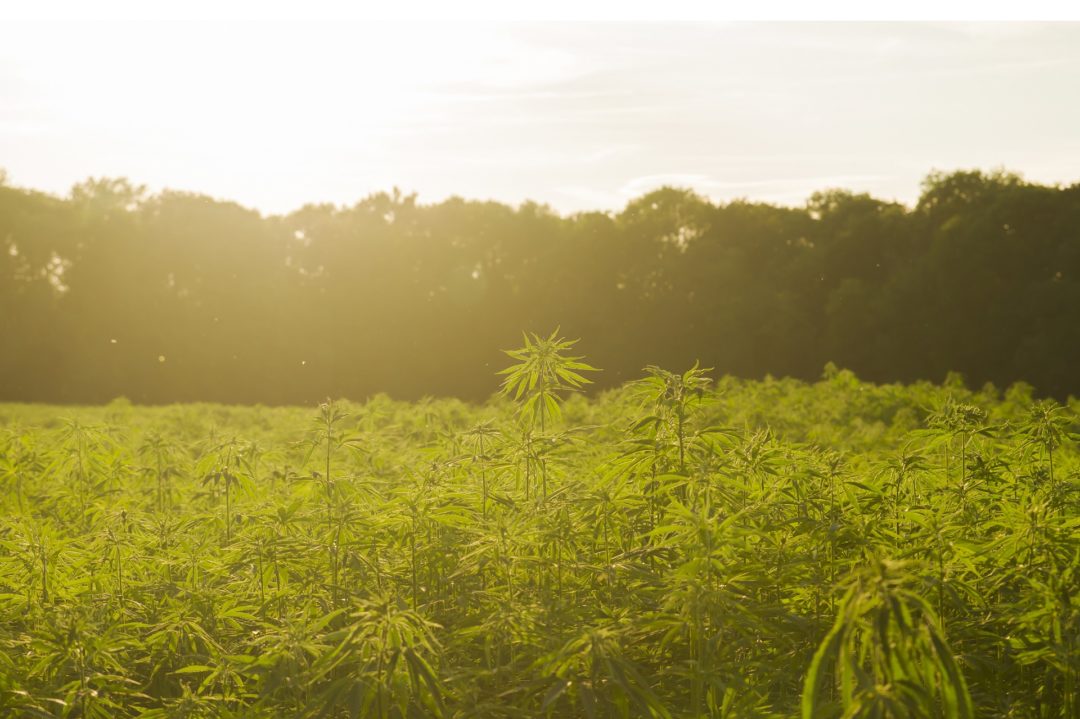
CBD Legal Status Causes Multi-State Crackdown

Asreported previously, South Dakota, Tennessee, and Illinois are all attempting to negotiate new laws around the sudden legality of CBD, while Oregon requested a clarification from the FDA on just what those laws are. FDA Commissioner Scott Gottlieb has not yet clarified, and Ohio, Maine, and New York are addressing the fact that CBD is not, according to Dr. Gottlieb,a legal food additive.
In Ohio, according to theCincinnati Enquirer, the Ohio Department of Agriculture is working with health departments and police agencies throughout the state to embargo products containing CBD. The process involves identifying, itemizing, and removing CBD products from store shelves.
Kate Zaidan, owner of Dean’s Mediterranean Imports in Cincinnati’s Findlay Market, told theEnquirer, “They basically came in and laid down the law and said we were no longer allowed to carry any CBD products. The saddest thing is my customers no longer have access to something that was really helping them.”
Enforcement officials said they were acting in accordance with the state law establishing Ohio’s medical marijuana program, which strictly prohibits CBD sales outside the state’s 56 licensed dispensaries.
In Maine, thePortland Press Herald reports, environmental health inspectors have begun informing businesses that they must remove all foods, tinctures, and capsules that contain CBD from their shelves. The Maine Department of Health and Human Services determined that CBD is an unapproved food additive.
TheHeraldnoted that the ruling threatens to derail Maine’s hemp industry. It pointed out that national industry analysts estimate the U.S. market hit $591 million in 2018 and, given the new federal legislation, it could hit $22 billion by 2022.
Dawson Julia, owner of East Coast CBDs in Unity, told theHerald, “We just had the carpet pulled out from under us. Hemp just got legalized nationally and now Maine wants to do a 180 and make it illegal here, when we’ve been doing it with their blessing for two years now?”
TheHeraldreported that CBD products that can be smoked, vaped, worn as a patch, or applied as a lotion can still be bought and sold, and medical marijuana patients can still buy oral CBDs from licensed dispensaries.
In New York, according to Eater, the Department of Health forced Fat Cat Kitchen in Gramercy Park to stop selling food with CBD, embargoing nearly $1,000 worth of CBD edibles during a routine inspection.
Co-owner C.J. Holm toldEaterthat the Department of Health had visited twice in the recent past and never mentioned the CBD products. Regarding the fact that CBD cannot be used as a food additive, she said, “It’s like telling me I can buy rum and I can sell rum, but I can’t sell a rum baba. It makes no sense.” She also said that CBD foods are around 30% of overall business.
The American Herbal Products Association (AHPA) has a free status report available, an on-demand webinar recorded in December, and will be holding a webinar on February 21st, 2019, all with the express purpose of helping the industry understand and navigate the complicated regulatory landscape. Professor Gene Bruno, MS, MHS, of the Huntington University of Health Sciences,has written a blog post for WholeFoodstaking a closer look at phytocannabinoids and CBD, including an overview of the legal nuances.
Update 2/12/19:
Georgia lawmakers have drafted legislation that would allow for the growing and processing of hemp in Georgia,according to All On Georgia, but the bill involves heavy legislation, barriers to entry, and high costs for participation in the program, sparking public pushback.
All On Georgiacontrasted Georgia’s program to those in Pennsylvania and Kentucky, two states that established agricultural research pilot programs after the 2014 Farm Bill made those programs legal. Georgia caps processors at three across the state, whereas PA and KY have no cap at all. The license fee in PA is $600; in KY, it’s $500 annually. The fee to bid to participate in Georgia is $100,000 annually, a fee that is not refunded if a bid is not awarded. PA allows hemp to be sold and purchased in-state and across state lines, subject to federal regulation; Georgia is seeking to require contracts between growers and processors, and to limit the transfer of goods. And the list goes on: Georgia is far more restrictive than KY and PA in terms of regulation, universities, punishment for violations, and inspections.
In better news, state representatives in South Dakota “overwhelmingly” advanced legislation to legalize industrial hemp days after Governor Kristi Noem asked them to shelve the efforts for this session,according to KEVN Black Hills Fox. She said that South Dakota “isn’t ready” for the production of industrial hemp, citing questions regarding enforcement, taxpayer costs, and effects on public safety.
The House voted 65-2 to send the bill to the Senate.
And in more exciting news, theLewisville Tribune reportsthat a bill legalizing the cultivation, sale, and processing of industrial hemp in Idaho was introduced by the House Agricultural Affairs Committee. Rep. Caroline Troy (R), is quoted in theTribune as saying, “It’s been a long road getting here.” Rep. Thyra Stevenson (R), said when she introduced the bill, “it’s been a long time coming.”
The legislation, theTribunesays, provides $150,000 for the Idaho Department of Agriculture to hire a program manager and part-time investigator to help jumpstart Idaho’s hemp industry.

The editorial team at WholeFoods Magazine has decades of experiences reporting on natural products industry news, trends, and more. This national, monthly business-to-business magazine has been published continuously for nearly 40 years (the magazine was founded in 1977, and has been owned by Wainer Finest Communications since 1984). It is the longest-tenured media outlet of its kind in the natural products industry. The editorial focus at WholeFoods Magazine is, and always has been, on informing and educating members of the natural products industry.
The Magazine
Information
About Us
NOTE: WholeFoods Magazine is a business-to-business publication. Information on this site should not be considered medical advice or a way to diagnose or treat any disease or illness. Always seek the advice of a medical professional before making lifestyle changes, including taking a dietary supplement. The opinions expressed by contributors and experts quoted in articles are not necessarily those of the publisher or editors of WholeFoods.







